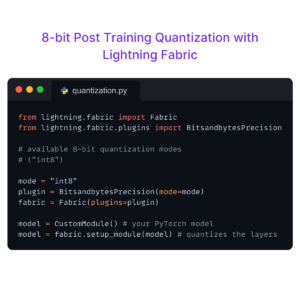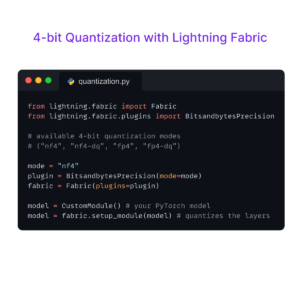Robot dogs and LLMs alike are gaining agility and sophistication. Meta AI’s Galactica is summarizing scientific knowledge and NVIDIA and Microsoft team up to to create one of the most potent AI supercomputers in the world. Let’s dive in!
Research Highlights
💫 A large language model for science called Galactica was unveiled by Meta AI researchers. The model was birthed our of the frustration researchers feel when combing through the massive volume of scientific knowledge online. The model was trained on a large scientific corpus of papers, reference material, knowledge bases and many other sources. Galactica can respond to simple text commands to summarize academic literature, resolve mathematical issues, create Wiki articles, and more.
🐕 An end-to-end locomotion system capable of navigating stairs, curbs, stepping stones, and gaps was introduced by researchers from Carnegie Mellon and UC Berkeley. Their medium-sized quadruped robot only uses a single onboard RGBD camera employing ecocentric vision. More videos of the “robot dog” can be seen here.
🗣️ Researchers at UNC Chapel Hill studied the relationship between the knowledge memorized by large language models (LLMs) and the information in their pre-training datasets. Their findings showed that a LLMs ability to answer a fact-based question relates to how many documents associated with that question were seen during pre-training. Their results claim to demonstrate a strong correlational and causal relationships between accuracy and relevant document count for numerous question answering datasets, pre-training corpora and model sizes.
ML Engineering Highlights
🎮 Sony’s latest patent describes an artificial intelligence system that would take game footage and enhance it with auto-generated input captions, even without access to the actual controller metadata from the recorded sessions. As such, the technology would hinge on robustly trained machine learning models which would have to be taught gameplay mechanics on a per-game basis.
💗 In order to more effectively identify harmful chat in multiplayer video games, Ubisoft and Riot Games have joined forces to share machine learning data. This is the first time that shared machine learning data has been used in a cross-industry research project. In essence, each company has created their own deep learning neural networks. These systems employ AI to automatically scan in-game text chat and identify instances where players are acting negatively toward one another.
💻 In order to help businesses train, deploy, and scale AI, including large, cutting-edge models, NVIDIA and Microsoft announced a multi-year partnership to create one of the most potent AI supercomputers in the world. This supercomputer will be powered by Microsoft Azure’s supercomputing infrastructure in conjunction with NVIDIA GPUs, networking, and full stack AI software.
Open Source Highlights
📷 Do you have sentimental low-res photos that you’d like to restore? GFPGAN, a free open source software claims to improve the resolution and beauty of these images in addition to being able to fix some damage. GFPGAN is made for face restoration and uses a pre-trained GAN model to convert low-quality images to high-resolution
⏱️ TheGist released a product that uses AI to scan Slack messages and provide a personalized summary, aiming to filter out noise. Their Slack app can provide summaries of both channels and threads, covering time scales from one day to several weeks. Beyond this, it can summarize particularly long individual Slack messages to help folks
⚖️ A class-action lawsuit alleging that AI-code-generating software Copilot violates US copyright laws named OpenAI, Microsoft, and its subsidiary GitHub as the guilty party. Because GitHub’s Copilot generative AI system is trained on a wealth of licensed open-source code scraped from the internet with no credit given to the authors, the lawsuit accuses the trio of significant piracy responsibility.
Community Spotlight
Want your work featured? Contact us on Slack or email us at [email protected]
⚡ Always wanted to contribute to an open-source project but not sure where to start? Check out our good first issue label on GitHub for issues that our team has selected as good choices for newcomers to open-source work.
⚡ This merged PR adds an ax argument to trainer.tuner.lr_find().plot(), thus allowing users to provide an optional matplotlib Axes object for plotting the LR finder graph. Shoutout to community member Bipin Krishanan for landing this!
⚡ This merged PR addresses the issues proposed here, related to unsupported configurations in the Lightning Trainer. Shoutout to community member Atharva Pathak for landing this!
Lightning AI Highlights
⚡ Have you stopped by our docs recently? 👀 Rumor has it we’ve been making some changes so that you can understand the benefits of building with Lightning quickly and easily. They’re more interactive than ever before — you can engage with the Lightning platform in a single click. Check them out!
⚡ We’re hiring! Check out our current openings here — we’ve got positions open in Engineering, Marketing, and Product & Design.
Don’t Miss the Submission Deadline
- IJCAI 2023: the 32nd International Joint Conference on Artificial Intelligence. Aug 19-25th 2023. (Cape Town, South Africa) Abstract due: January 11, 2023. Full paper submission deadline: January 18, 2023
- ACL 2023: The 61st Annual Meeting of the Association for Computational Linguistics. July 9-14 2023 (Toronto, Canada). Full paper submission deadline: January 20, 2023
- ICML 2023: Fortieth International Conference on Machine Learning. Jul 23-29 (Honolulu, Hawaii). Full paper submission deadline: January 26, 2023 08:00 PM UTC
- IROS 2023 :International Conference on Intelligent Robots and Systems. Oct 1 – 5, 2023 (Detroit, Michigan). Full paper submission deadline: March 1, 2023
- ICCV 2023: International Conference on Computer Vision. Oct 2 – 6, 2023. (Paris, France). 1. Full paper submission deadline: March 8, 2023 23:59 GMT
Upcoming Conferences
- IROS 2022: International Conference on Intelligent Robots and Systems. Oct 23-27, 2022 (Kyoto, Japan)
- NeurIPS | 2022: Thirty-sixth Conference on Neural Information Processing Systems. Nov 28 – Dec 9. (New Orleans, Louisiana)
- PyTorch Conference: Brings together leading academics, researchers and developers from the Machine Learning community to learn more about software releases on PyTorch. Dec 2, 2022 (New Orleans, Louisiana)

